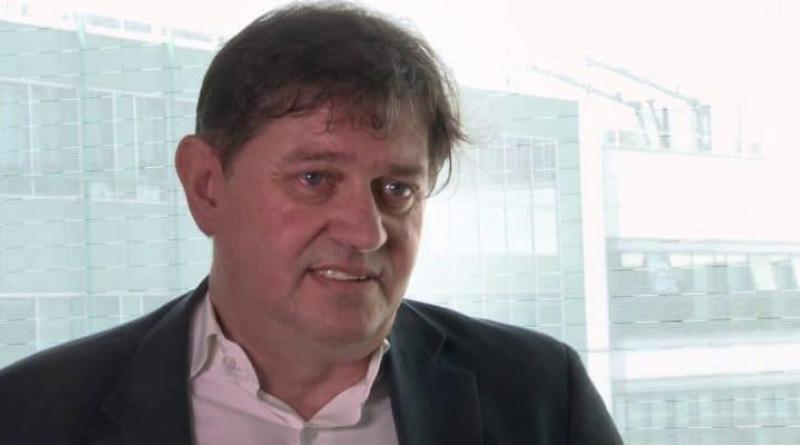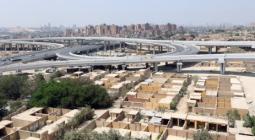Alain Bloch: “investments contributing to the decarbonization of cities”

On the sidelines of the Committee of African Cities which closed on September 20, 2023 in France, the general director of Setec Afrique, the subsidiary of the Society for Technical and Economic Studies (Setec), gave an interview to AFRIK 21. Alain Bloch returns on the challenges that the continent's territories face on a daily basis. From waste management to mobility and air pollution, the French industrialist explores the intervention of its teams in terms of urban infrastructure adapted to demographic growth and climate change.
Benoit-Ivan Wansi: Why did you create Setec Afrique in 2020? And how many subsidiaries do you have on the continent?
Alain Bloch : Setec has been working in Africa for 50 years, but the creation of Setec Afrique results from several observations: — The needs of sub-Saharan Africa are enormous in areas that Setec masters particularly well, such as transport and water. — We want to create high-level African engineering with local personnel trained in our methods. — This ambition requires an organization adapted to generate work locally, which will be carried out entirely on site or in collaboration with the French companies in the group.
Today we have seven subsidiaries, notably in Ivory Coast, Senegal, Cameroon, Gabon, Congo, Benin and Madagascar as well as a branch in Guinea.
What is Setec Afrique’s turnover? Do you work with partners, particularly investment companies and groups like Meridiam?
Setec Africa's turnover in 2022 is 8.5 million euros and it is expected to exceed 14 million euros in 2023. These figures represent approximately 50% of the group's total activity in sub-Saharan Africa, with strong synergies between Setec Afrique and the other companies in the group. We work with the public sector (States, public companies) and with the private sector. One of our important clients is the Meridiam fund with which we work on several projects, notably in Senegal, Gabon, and before the coup d'état, in Burkina Faso where we worked on the new Donsin international airport ( northeast of the capital Ouagadougou, Editor’s note). We also worked for Meridiam and Vinci in Kenya as part of a public-private partnership (PPP). We also collaborate with other investment funds such as Africa50 and with constructors such as Eiffage, NGE (BTP), Colas (the subsidiary of the French group Bouygues), Razel and Sogea Satom. In total, our private sector activity represents around half of our turnover.
You signed an agreement in 2022 with the government of Cameroon for a feasibility study as part of the implementation of the project to strengthen waste management systems in 27 secondary cities. What is this project and where is it to date?
The project aims to carry out territorial planning studies for the management of solid household waste in secondary towns in Cameroon — towns with more than 50,000 inhabitants which are not regional capitals — as well as to carry out technical feasibility studies. economics of the sorting infrastructures required in these cities and the preparation of a multi-year plan for the deployment of these infrastructures by the municipalities and the Ministry of Housing and Urban Development (Mindhu). Generally large projects are implemented in capitals. However, secondary cities also have their realities and their needs to satisfy. It is therefore a pilot project which, we hope, can be replicated in other countries.
You also operate in Senegal, notably for the deployment of sanitation infrastructure (the construction of the network, the installation of sewage treatment plants and fecal sludge treatment stations) in seven secondary towns of Kaolack, a border region with The Gambia also faces the problem of dilapidated sanitation networks. What is the cost of the work and what will be the direct impact on the daily lives of residents?
We effectively supervise these work contracts intended to collect and treat wastewater from seven small towns in this region. This type of equipment has a direct impact on the daily life and health of residents as well as on the environment since wastewater is recycled by eliminating pollutants before being released into nature. The cost of the work is around 14 billion CFA francs (21 million euros).
Benin is one of the countries south of the Sahara most affected by the effects of climate change with the increase in flooding in main cities such as Cotonou. What explains this and what solutions do you offer in terms of infrastructure and risk preparedness?
Cotonou is in fact exposed to the risk of periodic flooding, due partly to “uncontrolled” urbanization (particularly along Lake Nokoué) and partly to climate change which increases the frequency of exceptional rains. The Beninese authorities, with the support of donors, have launched a vast rainwater sanitation program in Cotonou (around 500 million euros), including collectors and retention basins. This should significantly improve the situation, but greater control of town planning is essential for this improvement to be lasting.
The African Climate Summit has just concluded in Nairobi, Kenya. One of the thorny issues was that of the energy transition. Do you think Africa is ready to abandon transitional energies and turn to solar power plants and hydroelectric dams? Do you have any projects aimed at decarbonizing territories?
At least 600 million Africans (more than 40% of the population) do not have access to electricity. The renewable energy resources (hydroelectricity, solar, wind, geothermal energy, etc.) available to Africa are significant and must mainly fill this deficit, remembering, however, that some cannot be stored. Obviously, the solutions must be well adapted to the characteristics of each country. There are regions that are more suitable for dams, others for solar energy. Several solar power plants have been built in the north of Senegal and a hydroelectric dam is under construction in the south, for example. Ethiopia, for its part, has invested in wind power. At the recent African Climate Summit in Nairobi,
As for the decarbonization of territories, Setec works mainly on issues of urban mobility, with projects which should make it possible to use the car less in favor of collective transport, often electrified (TER of Dakar, metro of Abidjan, BRT electricity of Dakar).
What about mobility in urban areas?
In Senegal we have several concrete projects in the modernization of urban transport. Thus, we are prime contractors for the TER (civil and railway engineering) and we work on different aspects of the Dakar bus network (BRT — Bus Rapid Tansit — electric, restructuring of the feeder network). We are also working on the BRTs in Douala and Abidjan and we have been assisting the Ivorian State for many years with the construction of the Abidjan metro... these are important infrastructure projects which will contribute to the reduction of gas emissions greenhouse effect (GHG). We also look at the economic benefit of electric vehicles compared to thermal vehicles which are more polluting. These different investments will contribute to the decarbonization of cities.
What relationship do you have with municipalities and civil society in the implementation of your various projects on the ground? Do you often organize reforestation or “citizen” waste collection initiatives like most international groups present on the continent do?
An engineering company like Setec intervenes more at the level of environmental and social impact studies (ESIA) which make it possible to collect the opinions of the populations and to formulate recommendations favorable to the environment and the inhabitants, or allowing at least limit the possible negative effects of a project. And we integrate environmental constraints from the first stages of design.
You do not intervene directly in southern Africa. Does this mean that the cities of the sub-region are more advanced in terms of sustainable development?
For the moment, we operate mainly in Central and West Africa as well as Madagascar, because these are the areas we know best. But we are not excluding anything for the future.
In your opinion, which African cities are performing well in terms of climate resilience and which are still very far from the expected “sustainability”?
I don't know all the African cities, but Dakar and Abidjan have fully understood the challenges that await them and have a proactive mobility policy managed by competent authorities. Cotonou is also changing radically for the better. Generally speaking, all territories should first be provided with good governance tools in the key areas of sustainable cities such as mobility, sanitation and energy.
Comments collected by Benoit-Ivan Wansi






